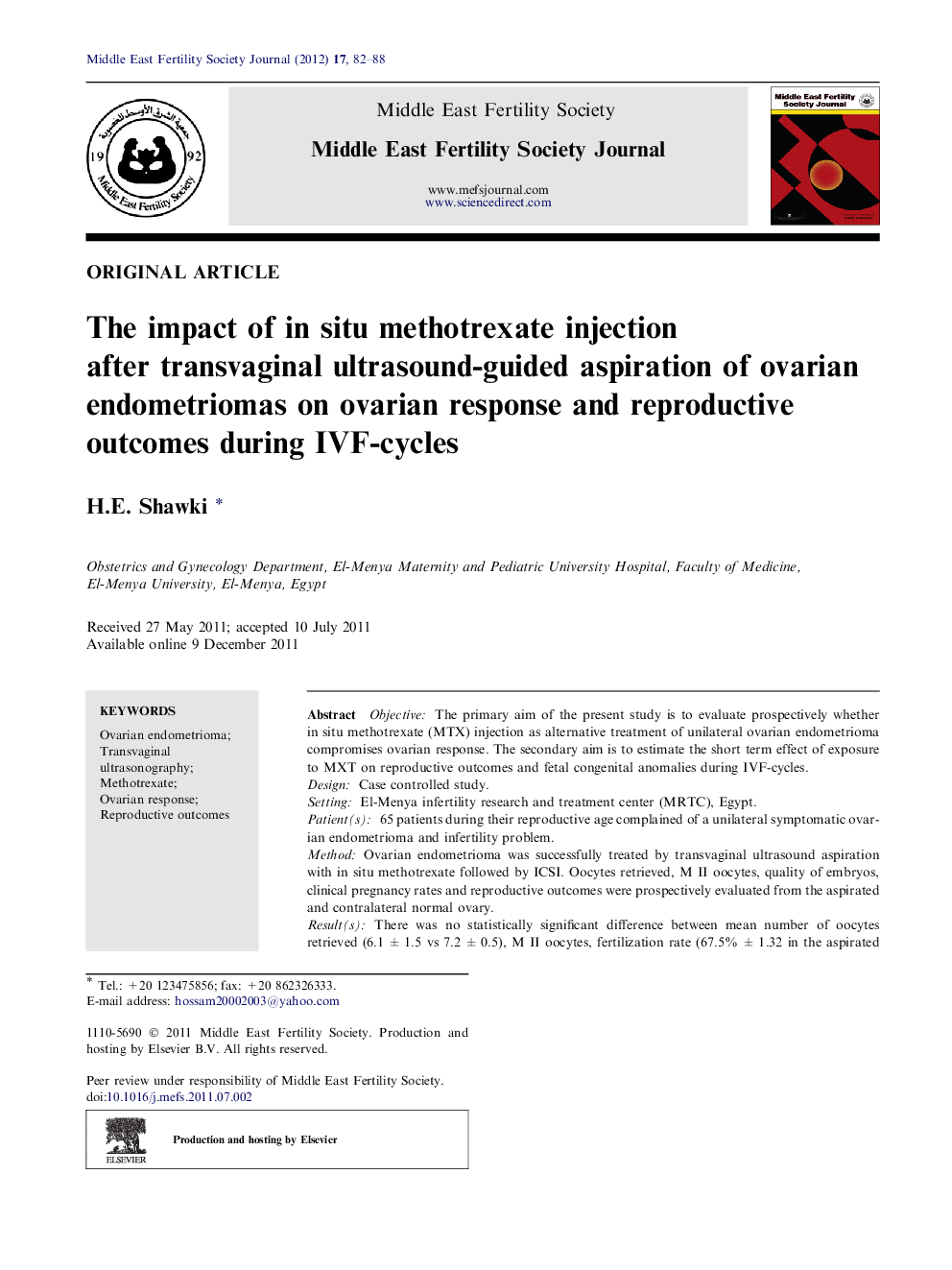| Article ID | Journal | Published Year | Pages | File Type |
|---|---|---|---|---|
| 3966215 | Middle East Fertility Society Journal | 2012 | 7 Pages |
ObjectiveThe primary aim of the present study is to evaluate prospectively whether in situ methotrexate (MTX) injection as alternative treatment of unilateral ovarian endometrioma compromises ovarian response. The secondary aim is to estimate the short term effect of exposure to MXT on reproductive outcomes and fetal congenital anomalies during IVF-cycles.DesignCase controlled study.SettingEl-Menya infertility research and treatment center (MRTC), Egypt.Patient(s)65 patients during their reproductive age complained of a unilateral symptomatic ovarian endometrioma and infertility problem.MethodOvarian endometrioma was successfully treated by transvaginal ultrasound aspiration with in situ methotrexate followed by ICSI. Oocytes retrieved, M II oocytes, quality of embryos, clinical pregnancy rates and reproductive outcomes were prospectively evaluated from the aspirated and contralateral normal ovary.Result(s)There was no statistically significant difference between mean number of oocytes retrieved (6.1 ± 1.5 vs 7.2 ± 0.5), M II oocytes, fertilization rate (67.5% ± 1.32 in the aspirated ovary versus 70% ± 0.55 in the normal ovary), and quality of the embryos obtained from the aspirated ovary and the normal contralateral one (P > 0.05). The mean endometrial thickness was (11.3 ± 1.33 mm) and the quality of the endometrium was homogenous in 54/65 (83.07%). Implantation rate was 30.7% and the clinical pregnancy rate was 21/65 (32.30%). Nine patients (42.85%) have full term deliveries. The total living birth was 14/21 (66.6%) and cumulative pregnancy rate was 48%.Conclusion(s)In situ methotrexate injection after transvaginal ultrasound-guided aspiration was a simple, safe and successful method for treating ovarian endometriomas with minimal effects on ovarian response. Short term effects on reproductive outcomes, risk of fetal loss or anomaly were minimal. Six months was enough as washout period of the drug prior to conception and was advisable to prevent the small chance of chromosomal abnormalities in the offspring.
